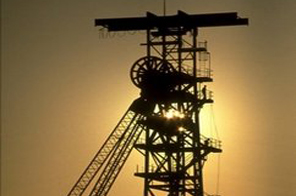Mining titan BHP in landmark iron ore pricing move
SYDNEY: Global mining giant BHP Billiton Tuesday said it would now sell iron ore to most Asian steel mills on a short-term basis, scrapping an annual pricing model that provoked acute tensions with China.
The Anglo-Australian company said a "significant" number of Asian customers had agreed to the change, which heralds the demise of a decades-old system and shakes up a key market for the region's dynamic economic growth.
The announcement comes a day after China jailed four employees of rival mining company Rio Tinto for corruption during last year's collapsed iron ore pricing talks, blaming them for costing the country huge economic losses. Related article: Rio trial raises concerns
"BHP Billiton today announced that it had reached agreement with a significant number of customers throughout Asia to move existing iron ore contracts that were previously priced annually onto a shorter term ... basis," the company said in a statement.
"The agreements reached represent the majority of BHP Billiton's iron ore sales volume."
BHP, which has long lobbied for the change and recently unveiled a similar arrangement for coking coal, released its statement a day before the current annual iron ore contracts were due to expire.
Investors reacted enthusiastically to the new arrangement with BHP's share price rising 1.31 percent to 43.95 Australian dollars (40.40 US dollars) in early trade.
While the biggest Asian mills favoured the certainty provided by annual prices, smaller operators were frozen out by the mining giants -- leading to the bribery exposed in the Rio case as they vied to grab a piece of the action.
"We believe this represents a significant win for BHP Billiton over Asian steel mills who have long resisted the move away from annual contract pricing," said IG Markets analyst Ben Potter.
"BHP Billiton appears to have convinced them that this is a fairer and more transparent way of pricing that eliminates large discrepancies between spot and contract pricing."
BHP chief executive Marius Kloppers said last month that instead of fixed annual prices, the spot or real-time market was the best indicator to "what expectations should be on where prices are heading".
BHP's move may help soothe increasingly fraught relations between miners and China, now the world's biggest consumer of iron ore used for steel in everything from buildings to roads, cars and appliances.
On Monday, four Shanghai-based Rio employees including Australian national Stern Hu received heavy jail terms for bribery and industrial espionage surrounding the failed negotiations last year.
The talks fell apart when mining companies rejected Chinese demands for steep discounts on the prices already agreed with Japanese and South Korean steel mills.
Analysts said fellow top producers Rio and Brazil's Vale were likely to follow the BHP move, which had become inevitable after a dramatic rise in spot prices in recent years stoked by insatiable demand from China.
According to Japanese press reports Tuesday, Nippon Steel has agreed in principle to a massive hike in the price of iron ore it buys from Vale.
The new price will be in the range of 105-110 dollars per tonne for the April-June quarter, the reports said. Before falling last year in the global economic crisis, iron ore fetched a record 77-79 dollars per tonne in 2008.
"Annual prices are really a relic of the past," said Pengana Capital commodities analyst Tim Schroeders. "In today's environment you need to be able to adjust to the market reality a lot quicker than on an annual basis."






